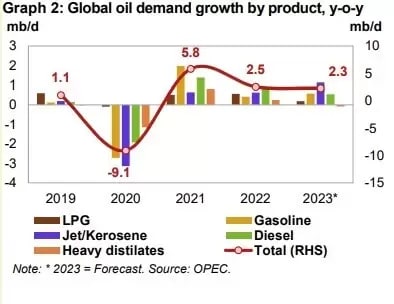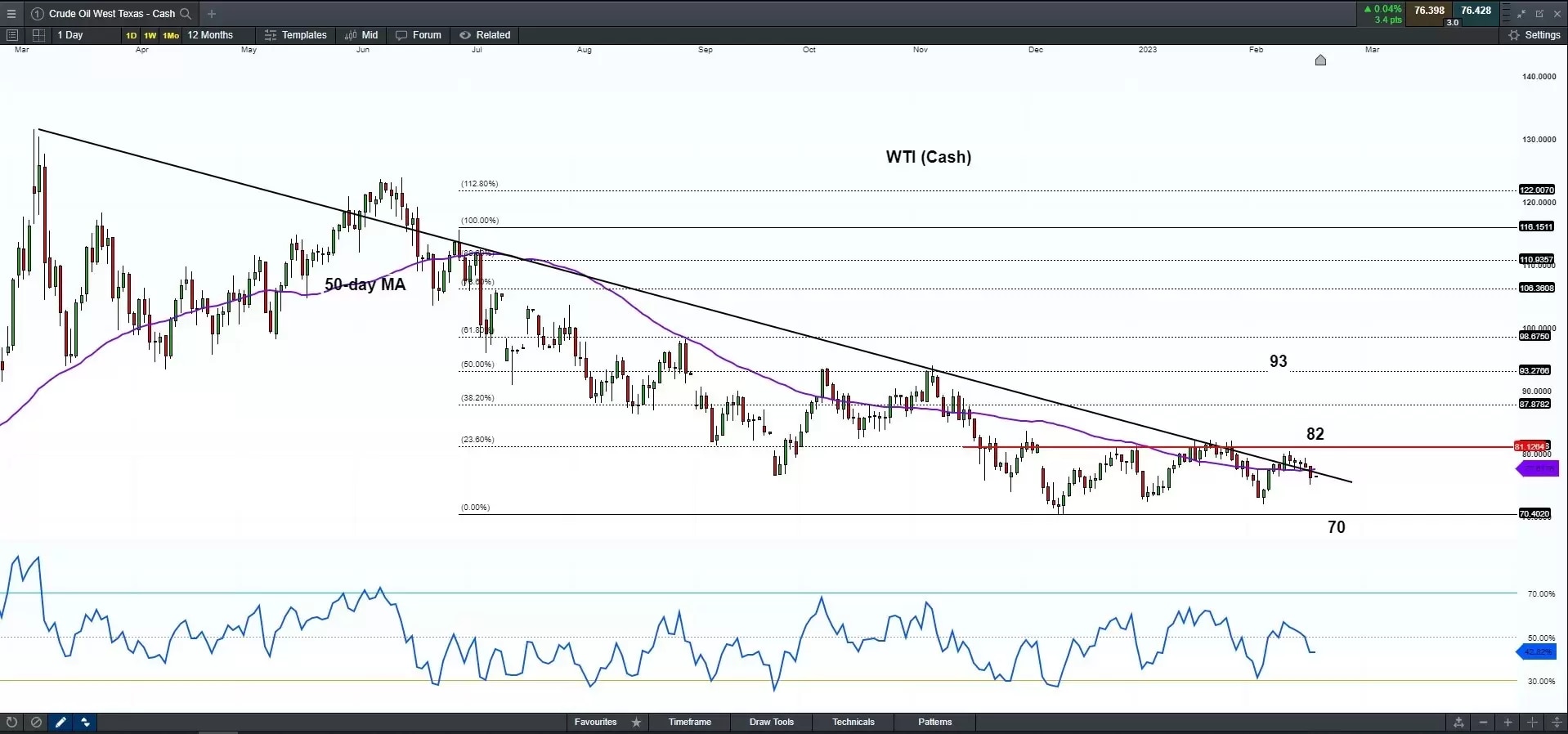Crude prices fell about 40% from their peaks of above $US130 per barrel in March 2022 when the Russia-Ukraine war started, which sparked concerns for already undersupplied oil markets due to the pandemic disruptions. Oil futures entered a downtrend since June last year, as traders realised that the aggressive central bank rate hikes may eventually cause an economic recession.
However, with China’s reopening and further sanctions on Russia, it seems that the oil market’s focus returns to the supply issue. According to the International Energy Administration, global oil demand is set to rise by 2 million barrels per day in 2023 to 101.9 million barrels per day. Is it a good time to think about dip-buys into the oil markets?
What's on the radar now?
Following the EU embargo on seaborn imports of Russia’s crude oil in December 2022 and February 2023, Russia announced cutting its output by 500,000 barrels per day from March. More production cut is expected if the EU imposes further sanctions. At the same time, the oil producer Cartel, OPEC + does not have the intention to respond to the production cut. The recent Biden administration’s plan to release US SPR by 26 million barrels through Congressionally mandate sales has sent oil prices down. But this may not solve the tight supply issue if Russia continues to cut production, along with a possible increment in oil demands amid China’s reopening. OPEC raised China’s demand by 80,000 barrels per day to 590,000 bpd in 2023.
According to OPEC’s forecast, the oil demand will increase to 2.3 million barrels per day year on year due to China’s reopening, with transportation fuels being the main drivers. Both WTI and ICE Brent Oil futures bounced off a near-term bottom of about $70 per barrel from the December low to about $80 and $85 in mid-February, fueled by the optimism about the improved demand outlooks amid China’s Covid-policy pivot.

Risks ahead
However, the biggest challenge that the oil markets are facing is weakened consumer demand amid recession fears. The US crude inventory reached 471.4 million barrels by the week ended 10 February, the highest since June 2021. The hotter-than-expected January CPI and PPI data both dashed hopes for the Fed to further slow down its rate hikes, flaring concerns about the economic outlook. But the recent strong labour market and the recent positive retail sales data may suggest that the US economy stays healthy despite macro woes.
Technical analysis: WTI crude tests 50-MA resistance
The WTI price fell below the 50-day moving average again, facing near-term pressure and suggesting it may continue the range-bound movement established since early December, with key support around 70 and near-term resistance around 82.

The directional bias is skewed to bearish in the coming days. But taking a medium-term view, the downside momentum shows exhaustion and a breakout of 82 may take oil prices to further test 93, which is the high seen in October and November in 2022, and a confluence with the Fibonacci 50% retracement. On the flip side, a breakout below 70 could take the WTI price to fall towards 70, which is the low from December 2021.
Disclaimer: CMC Markets is an execution-only service provider. The material (whether or not it states any opinions) is for general information purposes only, and does not take into account your personal circumstances or objectives. Nothing in this material is (or should be considered to be) financial, investment or other advice on which reliance should be placed. No opinion given in the material constitutes a recommendation by CMC Markets or the author that any particular investment, security, transaction or investment strategy is suitable for any specific person. The material has not been prepared in accordance with legal requirements designed to promote the independence of investment research. Although we are not specifically prevented from dealing before providing this material, we do not seek to take advantage of the material prior to its dissemination.







